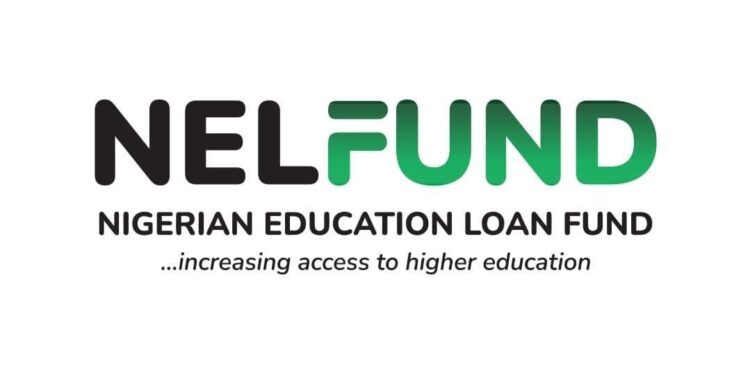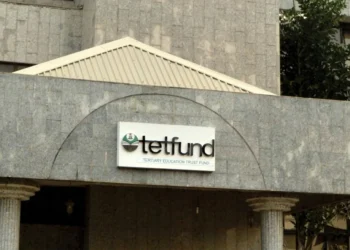The Nigerian Education Loan Fund (NELFUND) has expressed alarm over the steep hike in tuition and institutional charges by several universities and polytechnics across the country, describing the trend as a serious threat to its sustainability and to students’ access to education.
An internal report obtained by The Guardian from NELFUND’s Risk Management Unit revealed that fees in some institutions had risen between 20 and 521 percent, particularly for professional programmes such as Medicine, Nursing, and Law.
Titled “Report on Framework to Mitigate the Impact of Increased Institutional Charges on the Fund’s Operations,” the document listed the affected institutions to include: the University of Ilesha (Osun State), Ekiti State University, University of Medical Sciences (UNIMED), Ondo, Edo State University, Ladoke Akintola University of Technology (LAUTECH), Oyo State, and David Umahi Federal University of Health Sciences (DUFUHS), Ebonyi State.
Institutions, programmes record massive fee hikes
The report noted that the University of Ilesha raised its Nursing fees from ₦825,000 to ₦1.276 million (55% increase) and Law from ₦1.276 million to ₦1.526 million (20% rise).
At Ekiti State University, Medicine and Surgery fees rose from ₦797,000 to ₦1.132 million (42%), while Edo State University increased the same programme from ₦3.25 million to ₦4.25 million (31%).
Similarly, UNIMED Ondo hiked its Nursing fees by 149% (from ₦900,000 to ₦2.245 million), Community Health by 40%, and Medicine and Surgery by 70%.
LAUTECH recorded one of the sharpest increases, raising its Medicine and Surgery fees from ₦126,000 to ₦782,000 — a 521% jump — while Biomedical and Nursing programmes rose by 410%.
DUFUHS Ebonyi also increased its Medicine and Surgery tuition from ₦1.03 million to ₦1.5 million, representing a 46% rise.
Meanwhile, other institutions such as the Federal University of Agriculture, Abeokuta (FUNAAB), Federal University Oye-Ekiti (FUOYE), and Kogi State Polytechnic were reported to have raised charges by up to 1,000% in some cases.
NELFUND considers sanctions, new guidelines
To cushion the impact of the fee hikes, NELFUND’s committee recommended tough measures including suspending disbursements to defaulting institutions, capping loan amounts for affected students, and temporarily halting new loans to schools where tuition rose above 100% pending a comprehensive review.
It also advised that the Fund should work with the Federal Ministry of Education to create national fee guidelines, publish fee thresholds publicly, and establish a whistleblower platform for students to report exploitative practices anonymously.
According to the Student Loan Disbursement Dashboard, NELFUND had disbursed ₦107.6 billion to 581,878 students across the 36 states and the FCT as of September 26, 2025. Of this, ₦61.3 billion went to institutional fees and ₦46.3 billion to upkeep allowances.
Parents, students, activists react
Parents and education groups have condemned the fee hikes, warning that they could cripple access to higher education and undermine President Bola Tinubu’s student loan scheme.
A parent, Alabi Ademola, described the hikes as “a corrupt tendency,” saying:
“President Tinubu’s government is trying to help indigent students, but those who should support this effort are the ones frustrating it. Education should not become a luxury.”
The Education Rights Campaign (ERC), through its National Mobilisation Officer, Michael Adaramoye, criticised the loan scheme as “a debt trap.”
“The idea that loans will cushion the burden is false. Loans are not relief; they are debt traps. This policy is commercialising education and pushing students into lifelong debt,” he said.
Adaramoye called for the scrapping of the loan scheme and replacement with grants for indigent students, insisting that no institution should charge tuition above the national minimum wage of ₦77,000.
The National Association of Nigerian Students (NANS) also called on the Ministry of Education to impose restrictions on institutions that continue to raise fees. Its Public Relations Officer, Adeyemi Ajasa, said NANS has instructed its state and zonal branches to intervene locally before escalating matters to the national level.
“These schools think every student can take a loan. Not all have applied, and those who did will still repay. Education must remain accessible,” Ajasa said, citing FUOYE’s repeated fee hikes as a major concern.
Institutions, government respond
In defence, some institutions attributed the increases to inflation and the need to maintain academic standards.
Babatunde Fanawopo, Senior Assistant Registrar at the University of Ilesha, said:
“Nothing good comes cheap. Our tuition remains among the lowest in Law and Nursing, and we offer tuition-free programmes in Education and Agriculture.”
Similarly, Olasunkanmi Olajide, FUNAAB’s Acting Head of Public Relations, said:
> “Charges were adjusted in line with the prevailing economic reality.”
Officials from Edo State University, Ekiti State University, and Kogi State Polytechnic either declined to comment or failed to respond to inquiries.
A spokesperson for the Federal Ministry of Education, Folasade Boriowo, explained that the ministry’s powers are limited since education falls under the concurrent legislative list.
“The Federal Government’s concern is that every child has access to education. However, states have autonomy over their institutions,” she said.



















































































 EduTimes Africa, a product of Education Times Africa, is a magazine publication that aims to lend its support to close the yawning gap in Africa's educational development.
EduTimes Africa, a product of Education Times Africa, is a magazine publication that aims to lend its support to close the yawning gap in Africa's educational development.